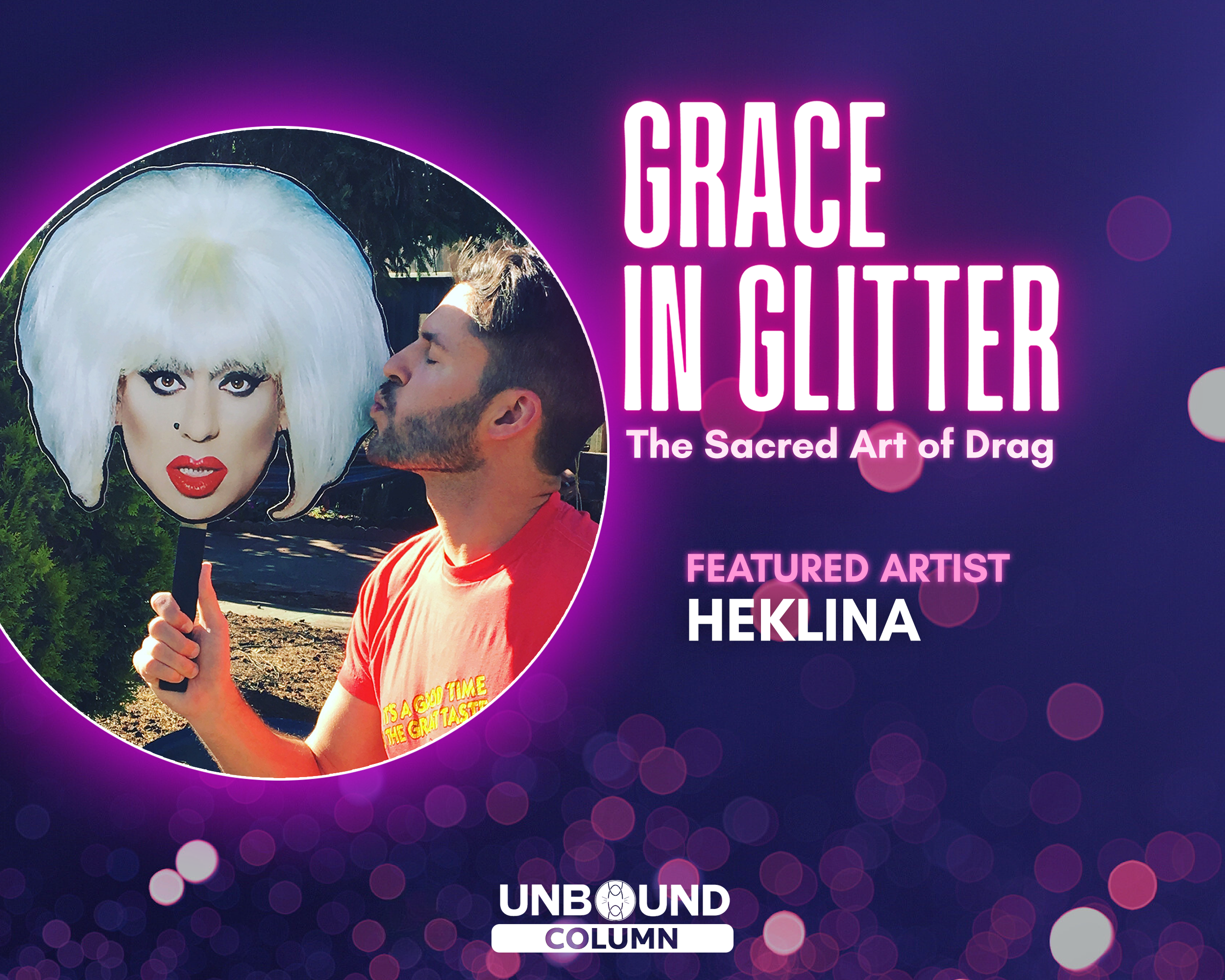Queering Daniel
What does it mean to “queer” a prophet? When I told people about the challenge I was facing to “queer Daniel,” I got some interesting reactions. My husband wanted to know if I was talking about the Daniel associated with the lions. He was interested in some queer angle involving large felines that he hadn’t been taught in Sunday school. A skeptical mentor (himself a queer pastor) suggested that I would have to perform a blatant act of “eisegesis,” reading into the texts motivations and inclinations not integral to the text.
And I doubted, myself. The end-times prophets I read and believed as a kid in the 70s had manipulated Daniel’s visions and timelines to prove that the fantastic creatures—and their talking horns—represented the European Union or whatever Democratic figure loomed largest in their fearmongering imaginations. As a result, the Daniel narratives seemed so inscrutable and ripe for misinterpretation that I felt they (like that of the other apocalypse—the Apocalypse of John, known as the Book of Revelation) were best left alone. Yet I chose to not back down from the assignment.
Which “Daniel” are we talking about?
The first dilemma I faced involved what was meant by “Daniel.” On the one hand, there is the figure of Daniel, the personification of legends stretching back into the mists of Hebrew pre-history. Then there are the bodies of texts assembled under Daniel’s name.
When scholars look specifically at the prophetic figure of Daniel, they find more than the biography of a person who lived in a specific time and place. They find a figure that had already become a legend by the time these texts were compiled. There are traces of a whole body of storytelling and literature that has grown up around Daniel, some of which have made it into the versions of the text we have received, and some of which have not. What we have received are three groupings of texts, each belonging to a different genre of Biblical literature.
The first section of Daniel (chapters 1-6) repeats the court tales familiar to Hebrew audiences of the day in which Daniel (the legendary figure) and his three companions negotiate life and remain faithful to God and their religious practices under precarious situations.
The second section of Daniel (chapters 7-12) presents a series of accounts that fall into the category of apocalypse, the revelation of knowledge. Although these visions are presented as predicting the near future, they more likely record a fantasy of escape and deliverance from situations in which the people compiling and interpreting these texts were living.
The third section (chapters 13-14, excluded from Protestant versions of the Bible) records three anecdotes in which a version of Daniel displays his wisdom and insight.
The figure of Daniel presented in these texts seems little more than a vehicle to carry the story forward. The text provides little information about him. If he has a family, they are never mentioned. And, aside from his demonstrations of character, the text does not tell us anything about his internal life.
But what can we see in all of this that we can comfortably claim as queer?
What does it mean to “queer” a prophet?
Decades of imaginative and careful scholarship have produced an entire academic discipline around queer readings of scripture and queer understandings of theology. This discipline (and the growing academic community around it) has developed its own orthodoxy and canon. It has developed and tested over time discrete methods of examining ancient texts in a manner that reveals truths that have been overlooked, suppressed, and even denied by scholars and laypersons who have not considered anything other than a cis-, often male, usually privileged, heteronormative perspective.
Decades of imaginative and careful scholarship have produced an entire academic discipline around queer readings of scripture and queer understandings of theology.
When we look at the writings that bear the name of Daniel as well as the figure of Daniel themselves, we are already looking at a body of accounts and narratives that have been interpreted and reinterpreted over vast stretches of time, written and rewritten by unknown numbers of hands, each with their own particular viewpoints and agendas for slanting their tellings in the particular ways that they have.
So we come to the task of queering the prophet Daniel as part of an ancient legacy of finding meaning in their stories and visions, seeking to understand what truths these legends hold that might speak to our own situations. We also come seeking to understand how these retellings of ancient legends resonate with and corroborate the special truths that we ourselves have discerned over the ages as queer people of faith.
But when it comes to the figure of Daniel, I find myself scratching my head. Nobody in these accounts offers me anything flamboyant or particularly colorful to resonate with the flamboyant and colorful aspects of my own queer identity. Upon rereading, I did not find in the text that the four Hebrew men had some traces of sexual or gender otherness. I found no princess dress as we find in the stories around Joseph. We find no intimations of same sex loving as in the stories of David and Jonathan. In fact, I found myself again reading Daniel and his steadfast companions as icons of rigid conformity to an inflexible and unbreakable law they would rather die than question.
So where is the queerness in Daniel?
When I took a deep breath, returned to the text, and searched for a through-line, an organizing principle, I found the very queer values of resistance and hope.
Again and again, we see Daniel and his companions resisting attempts to make them conform to a “foreign” set of traditions and lifestyles. Time and time again we see their resolve put to the test—even to the point of execution by the state. Time and time again we see them refuse to waver. And each time we see them delivered by the God in whom they have put their trust.
As a child, these stories were presented to me as lessons in steadfastness, as instruction in refusing to compromise the faith that I had received, as encouragement to challenge anybody who disagreed with the truths I had been taught because I was on God’s side, and God’s side always wins. Yet I firmly believe that the lessons I learned from the stories of Daniel enabled me for much of my life (and into the current day) to become a rigid, self-righteous, prick. So, is there any way of reading these texts that fosters inclusion, celebrates mystery, brings life? I think there is. And that requires a careful look at the context in which these stories were presented and to whom they spoke.
A liberative Daniel
The resistance of Daniel and his companions took place in the face of massive, state sponsored violence and oppression. The texts present us with a series of regimes that readily execute any person who does not make a public show of bowing to the idols of its authority. They tell us of a regime prepared to conduct mass executions on a whim. This was the lived experience of the people who compiled these stories about Daniel and placed them in a historic context not too far removed from their own. The authors were retelling and reshaping these stories for a people under brutal subjugation who needed very much to know that something of everything they held dear would survive. The authors were writing for a people who desperately needed to know that they had agency and that their agency mattered to God.
The authors were writing for a people who desperately needed to know that they had agency and that their agency mattered to God.
In the midst of exile, the Daniel narratives called people to remember a time when their lives mattered. But the stories grouped under the name of Daniel do not merely encourage resistance for the sake of resistance. Although other prophetic writings provide descriptions of the world to come, a world restored to the garden-like setting in which humankind was formed, Daniel does not spend a lot of time on this aspect of a vision of a coming world. Nevertheless, at the end of Daniel’s visions, after the vast number of details and avalanche of symbols, the text brings us again and again to a world restored by the God who has been witnessing and acting all along, even when it seemed that evil was going to be the last word.
Is this very different from the vision for which we suffer and resist and hope as queer people made in the image of God?
The book of Daniel is impossible to “queer” in terms of finding specifically queer characters or situations. There are no hidden gender or sexual themes to be revealed. However, we as queer people see in these stories a mirror of our own struggles to resist the state-sanctioned forces of conformity. We daily risk our lives in our refusal to bow down to the idols of violence and estrangement set up by the powers that be. And we do it all in the hope that the God who created us to be who we are in all our uniqueness and complexity, has acted, is acting, and will continue to act to restore a world where we both belong and flourish. But for now, the text encourages us in our struggle. It amplifies values of resistance and hope, values sorely needed in living a life that “queers” our understandings of power and envisions a world positively transformed.

Jon Carl Lewis is the host of Sex & the Queer Christian (https://sexqueerchristian.com), a growing, sex positive community dedicated to helping LGBTQ+ folk make sexual decisions and construct a personal sexual ethic in line with their values as part of the Body of Christ. A trained and certified spiritual director, Jon Carl seeks to help Queer Christians and their allies come to peace with their sexual and relational decisions while being a blessing and a witness to the world of Christ’s radically promiscuous love. Jon Carl lives with his husband of over twenty-six years in Central Jersey where he serves as a cantor and occasional preacher at a beautifully diverse, radically affirming United Methodist congregation. Find out more about Jon Carl’s spiritual direction practice at https://incarnatus.com or schedule a free time to chat at htttps://calendly.com/joncarllewis.



Unbound Social